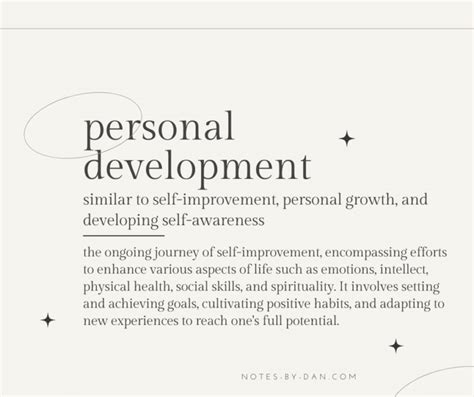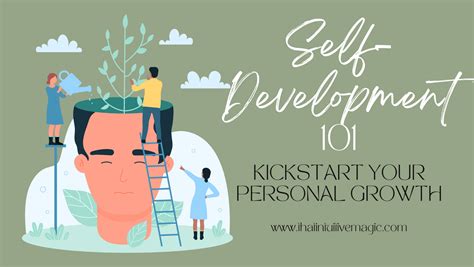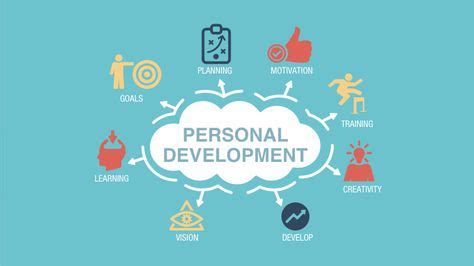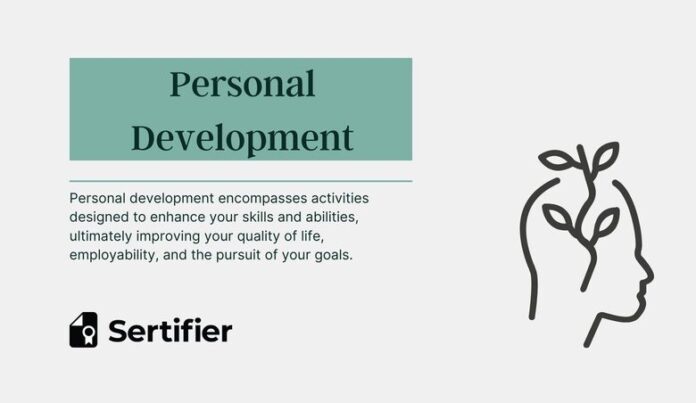In today’s fast-paced work environment, supervisors play a crucial role in fostering a positive and mindful workplace. To lead effectively, supervisors must develop skills that enhance their own well-being and that of their teams. This article explores the top skills every supervisor needs to cultivate mindfulness and promote a healthy work environment. From active listening and emotional intelligence to stress management and promoting work-life balance, these skills are essential for creating a supportive and collaborative atmosphere. By focusing on continuous learning and personal development, supervisors can not only enhance their own growth but also empower their teams to thrive. Discover how mastering these skills can lead to a more mindful and productive workplace.
Come explore this topic with terylblog.com for a deeper understanding.
1. Active Listening and Communication
Active listening and effective communication are essential skills for every supervisor to master. These skills are crucial for enhancing mindfulness and well-being in the workplace. Active listening goes beyond simply hearing words; it requires focused attention, comprehension, response, and retention of what is being said. By practicing active listening, supervisors demonstrate respect and genuine interest in their team members’ perspectives and emotions. This fosters a culture of trust and open communication within the team.
Effective communication is more than simply speaking clearly. It requires ensuring that messages are delivered in a manner that resonates with the listener’s point of view. This involves utilizing positive body language, maintaining eye contact, and offering constructive feedback. Supervisors who possess strong communication skills are better equipped to resolve conflicts, clarify expectations, and inspire their teams.
Active listening and strong communication skills are essential tools for supervisors in fostering a positive work environment. By effectively employing these skills, supervisors can create a space where employees feel valued and their voices are heard. This, in turn, reduces stress and misunderstandings, fostering a culture of collaboration and mutual respect. Furthermore, these skills enable supervisors to identify potential issues early on, allowing for timely intervention and support for team well-being. Developing these competencies is key to creating a more mindful and harmonious workplace, characterized by open dialogue and shared understanding.

2. Emotional Intelligence and Empathy
Emotional intelligence (EI) and empathy are crucial skills for supervisors striving to create a mindful and well-being-centered workplace. EI encompasses understanding and managing one’s own emotions while recognizing and impacting the emotions of others. This ability is paramount for supervisors, enabling them to navigate workplace dynamics, cultivate strong relationships, and effectively guide their teams through challenges.
Empathy, a crucial element of emotional intelligence (EI), entails stepping into someone else’s shoes to comprehend their emotions and viewpoints. Supervisors who demonstrate empathy can forge deeper connections with their team members, providing support and understanding when required. This connection fosters a safe environment where employees feel comfortable sharing their worries and suggestions.
By cultivating emotional intelligence and empathy, supervisors gain the ability to navigate conflicts more effectively, understand the emotional needs of their team members, and provide tailored support. This fosters a positive work environment by boosting morale, promoting psychological safety, reducing stress, and enhancing overall well-being. These skills enable supervisors to lead with compassion, making employees feel valued and understood.

3. Stress Management Techniques
Supervisors play a vital role in cultivating a healthy and productive work environment. This requires them to master stress management, not only for their own well-being but also to guide their teams through high-pressure situations. By implementing effective stress management techniques, supervisors can foster a more mindful and positive workplace for everyone.
One effective approach involves promoting regular breaks and encouraging team members to take time for relaxation and mental recharge. Techniques like deep breathing exercises, mindfulness meditation, and guided relaxation can aid in reducing tension and enhancing focus. Supervisors can set a positive example by demonstrating these practices during meetings or in moments of high stress.
Moreover, proactively pinpointing and addressing stress triggers is crucial. This can involve communicating task expectations clearly, setting achievable deadlines, and providing support during demanding projects. By fostering a supportive work environment, supervisors empower their teams to build resilience and manage stress more effectively.
By promoting open discussions about stress and mental health, organizations create a safe space for employees to seek support. When supervisors make stress management a priority, they demonstrate a commitment to both productivity and employee well-being. This fosters a healthier and more engaged team, where individuals feel valued and supported.

4. Promoting Work-Life Balance
Supervisors who are committed to fostering mindfulness and well-being within their teams have a crucial responsibility to promote work-life balance. A healthy equilibrium between professional and personal lives leads to greater employee productivity, motivation, and resilience against burnout. Supervisors can play a vital role in cultivating this balance by setting a positive example and cultivating a supportive work environment.
A successful approach involves promoting flexible work arrangements, like remote work or adaptable schedules, which empower employees to better handle their responsibilities. Supervisors should also champion reasonable workloads and achievable deadlines, preventing employees from feeling burdened by their tasks.
Supervisors can also foster a culture that embraces time off, making it not only acceptable but encouraged. Regularly checking in with team members about their workload and personal well-being demonstrates genuine concern and allows for the early identification of signs of stress or an unhealthy work-life balance.
Supervisors can enhance team morale and productivity by cultivating a workplace that values personal time and encourages healthy boundaries. Promoting work-life balance not only boosts overall job satisfaction but also strengthens employee retention. When supervisors lead with empathy and understanding regarding work-life balance, they create a mindful and supportive environment where both professional and personal lives are equally valued.
5. Mindfulness Practices and Techniques
Mindfulness practices and techniques are powerful tools for supervisors who seek to enhance well-being and foster a more focused, productive work environment. By being fully present and aware of the current moment, mindfulness helps reduce stress and improve emotional regulation. When supervisors incorporate mindfulness into their leadership style, they can create a more balanced and attentive team dynamic.
A practical approach is to incorporate short mindfulness exercises into meetings or work breaks. These could include guided breathing exercises, body scans, or five-minute meditation sessions, all designed to help employees reset and refocus. Additionally, promoting mindful practices such as journaling or reflective thinking can foster emotional clarity and reduce stress.
Supervisors can model mindfulness by incorporating it into their own lives, showcasing its effectiveness in managing stress and enhancing decision-making. By providing workshops or resources on mindfulness, supervisors can further encourage team members to explore and develop their own personal mindfulness practices.
Workplace mindfulness practices, when integrated by supervisors, empower employees to cultivate enhanced self-awareness, empathy, and resilience. This fosters not only individual well-being but also a more collaborative and supportive work environment. By encouraging mindfulness, teams are equipped to face challenges with a calm and focused approach, leading to improved communication, problem-solving, and overall job satisfaction.
6. Conflict Resolution and Mediation Skills
Conflict resolution and mediation skills are essential for supervisors to maintain a harmonious and productive workplace. Conflicts are inevitable in any team setting, but how they are handled can significantly impact team dynamics and overall well-being. Effective supervisors must be adept at recognizing conflicts early, understanding their root causes, and facilitating constructive dialogues.
Supervisors can use active listening and open-ended questions to encourage team members to express their concerns and perspectives. This approach fosters a safe environment where employees feel heard and understood. Mediation techniques, such as guiding conversations towards finding common ground and collaborative solutions, can help resolve conflicts amicably.
By maintaining neutrality and focusing on problem-solving rather than assigning blame, supervisors can defuse tension and prevent conflicts from escalating. Encouraging empathy and understanding among team members also helps in creating a culture of mutual respect. Strengthening these skills ensures that conflicts are managed effectively, promoting a positive work atmosphere where teams can thrive together.
7. Encouraging Team Collaboration and Support
A mindful and thriving workplace is built on a foundation of team collaboration and support. Supervisors play a crucial role in fostering this environment, not only enhancing team dynamics but also contributing to the overall well-being and productivity of the workplace. By encouraging open communication and teamwork, supervisors can create a supportive atmosphere where employees feel valued and motivated.
One effective strategy is to create opportunities for team-building activities that foster trust and cooperation. These activities can range from collaborative projects and brainstorming sessions to social events that strengthen interpersonal relationships. Regular team meetings, where every member is encouraged to share ideas and feedback, also contribute to a sense of inclusion and collective problem-solving.
Furthermore, acknowledging and praising team accomplishments can enhance morale and cultivate a supportive environment. Supervisors should offer regular feedback and encouragement, emphasizing the individual contributions of each member to the team’s successes.
By implementing mentorship programs or peer support systems, experienced team members can guide and assist their colleagues, fostering a stronger sense of collaboration. Encouraging a culture of knowledge and resource sharing ensures that everyone benefits from the collective expertise of the team.
Supervisors who foster collaboration and support create a work environment that empowers team members, engages them in their work, and motivates them to achieve shared goals. This approach not only enhances individual well-being but also drives overall team success.
8. Continuous Learning and Personal Development
Continuous learning and personal development are essential for supervisors who want to enhance mindfulness and well-being in the workplace. Encouraging ongoing growth not only benefits supervisors personally but also positively impacts their teams and the organization as a whole. A commitment to learning fosters a culture of improvement and adaptability, which is crucial in today’s rapidly changing work environment.
Supervisors should actively seek opportunities for their own development, such as attending workshops, pursuing further education, or engaging in professional networks. By staying current with industry trends and best practices, they can bring fresh insights and strategies to their role.
Moreover, promoting a learning culture within the team is equally important. Supervisors can support employees’ professional growth by offering access to training programs, mentoring opportunities, and encouraging skill development. Regularly setting and reviewing personal and professional goals helps employees stay motivated and focused on their development.
Incorporating continuous learning into daily routines and work processes enhances both individual and team performance. This commitment to growth fosters resilience, innovation, and a proactive mindset, contributing to a more mindful and dynamic workplace where everyone feels empowered to reach their full potential.
Incorporating essential skills like active listening, emotional intelligence, stress management, and mindfulness can significantly enhance a supervisor’s ability to foster a positive and productive work environment. By promoting work-life balance, effective conflict resolution, team collaboration, and continuous personal development, supervisors not only support their own well-being but also empower their teams, leading to a more engaged and harmonious workplace.
terylblog.com
